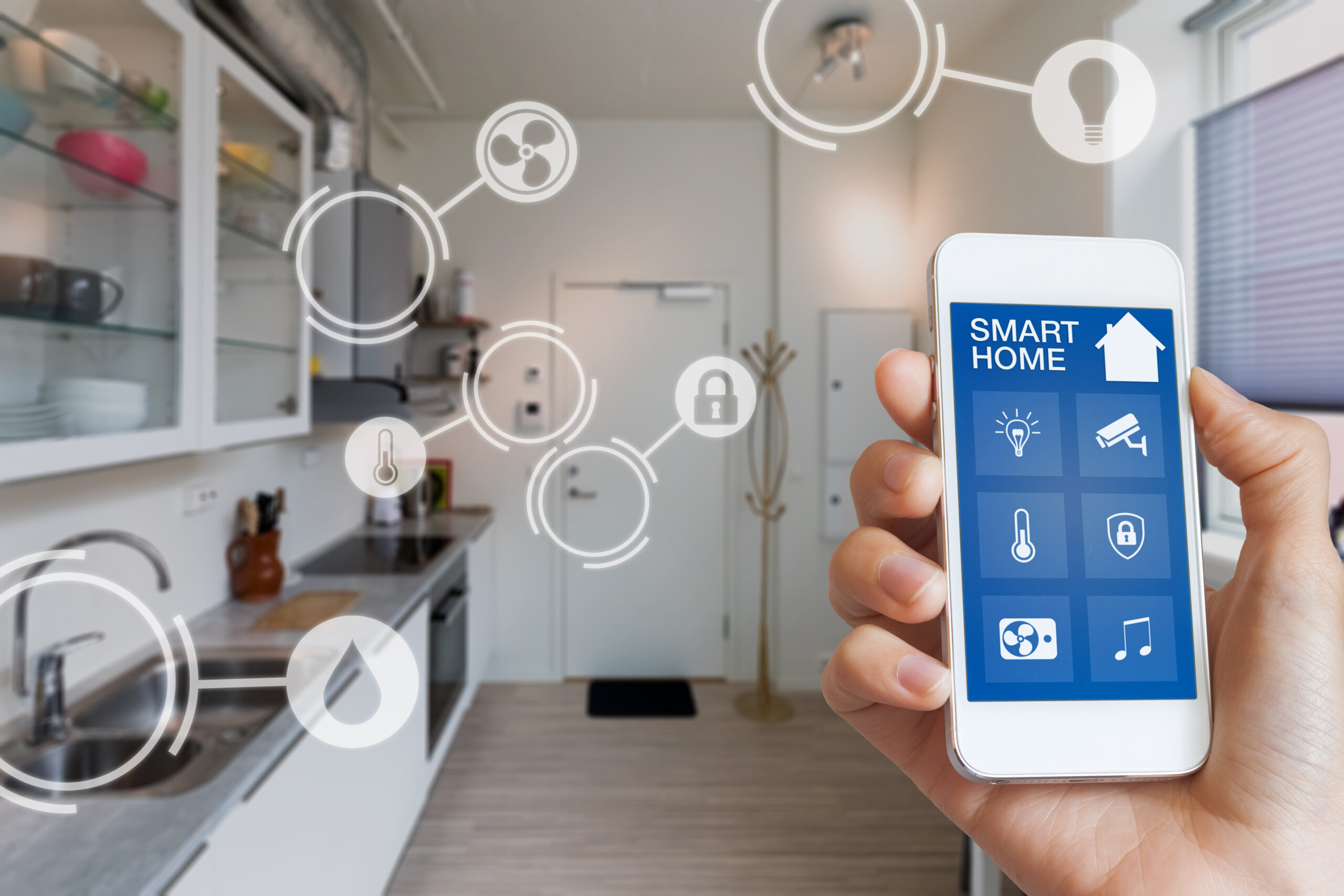Faster connectivity to the internet and the imminent arrival of 5G means that our homes are set to become Smarter than ever before. But how safe is it having a range of devices in your home that are connected to the internet? Are you likely to be hacked? Will nefarious characters be watching you through your Smart TV or listening in to your personal conversations on Alexa?

We take a look at how safe a Smart home really is.
What is a Smart Home?
More and more devices in the home are being connected to the internet giving us more features and better control over them. For things like heating, for example, a Smart system allows you to change the temperature in your home using your phone, which comes in very handy during the Winter months. You can now use voice commands to turn on the lights or play music through a connected speaker. Smart security products are becoming very popular, from video doorbells to complete home alarm systems and security cameras that give you live updates via a mobile app. There is even a kettle you can set to boil using your mobile phone and a fridge that will send you a picture of its contents if you are in the supermarket and have forgotten your list. Whilst on the surface, some of these operations seem a little frivolous, there are a few innovative uses that are making a real difference to peoples lives, including the recently announced partnership between the NHS and Amazon Alexa.
Can Your Smart Home Be Hacked?
Any device that is connected to the internet has the potential to be hacked. There’s been some interesting research done in this area which has highlighted the possible risks. vpnMentor hired a group of ethical hackers to try and break into Smart home devices. They found it surprisingly easy.
The hackers found they could easily access 3 popular devices, these were smart speakers, smart cameras and smart security doorbells. With the speaker, they were able to live stream audio remotely. Accessing the camera, they could change the password and get the IP address of the device. With the doorbell, they were able to turn it into a Wi-Fi access point.
While none of these are life-threatening, they do show an alarming potential for hackers to get into your home systems and manipulate them. In fairness to the manufacturers, these were all first-generation devices and all have been developed since then with better security.
The Future of Smart Homes
If all this has filled you with a sense of dread, bear in mind when we first connected to the internet security was very poor and we have come a very long way since then. Smart device security is something that tech companies have been battling with for some years. Our phones, tablets and computers have long been targets for hackers.
Smart homes take interconnectivity to the next level and have the potential to greatly enhance lives but there are challenges to overcome. To reduce the security risk there are several things you can do, including:
- Only buy smart devices from reputable suppliers and never purchase used ones.
- Where possible ensure the product operates over a secure network, especially important if you are considering a Smart home alarm system.
- Check online when you are thinking about buying a device and see if there have been any issues reported.
- Use strong passwords for your device that are hard to crack and change these on a regular basis.
- Don’t have different devices sharing the same password.
Make sure that you implement any software updates immediately. The majority of updates are security patches with only occasional feature improvements. Just like normal computer updates, so it is vital you keep on top of these.






